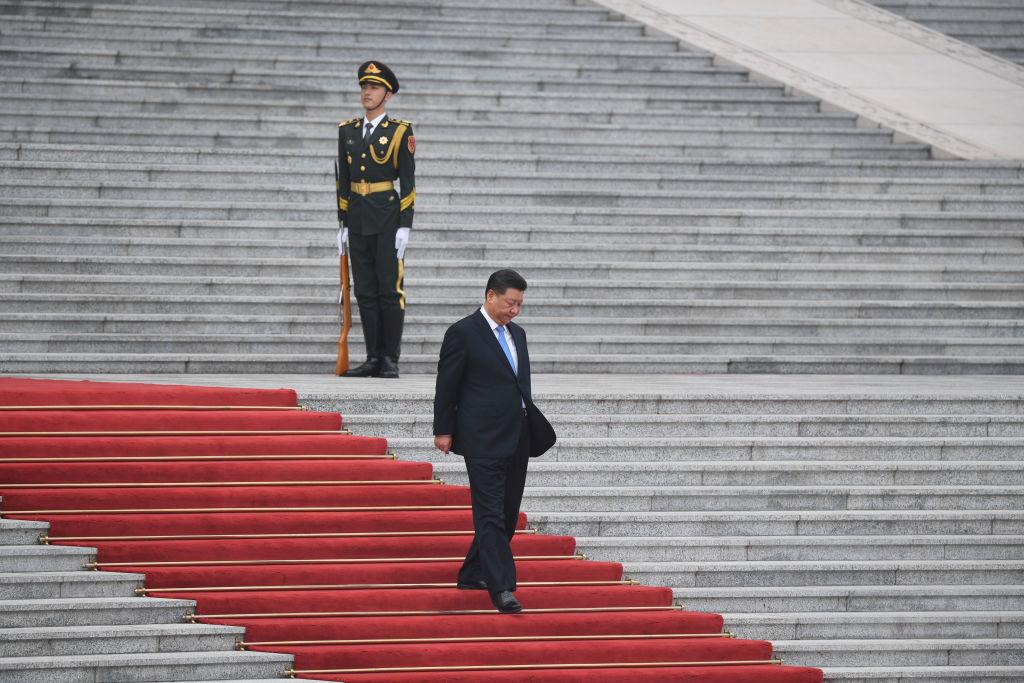A return to diplomacy could save China from itself
Posted By Allan Behm on December 3, 2019 @ 06:00

Zhou Enlai, China’s first premier, was arguably one of the best diplomats of the 20th century. Maintaining connections between the outside world and a revolutionary government that had thrown out the baby, the bathwater and the bath was an astonishing feat. He achieved this through intellect and diplomatic skill.
Where are Zhou’s successors?
With its economic power and growing strategic weight, China is acquiring the kind of national power that should generate mutually favourable outcomes without recourse to subversion.
But to do this, China needs to build its authority, the critical concomitant of power that gives power political and strategic effect. Having built its authority in the aftermath of World War II, the US was able to back its power, thereby acquiring the legitimacy needed for it to claim global dominance. President Donald Trump is well on the way to forfeiting that [1], something that China has not been slow to exploit. But China shows no signs of having studied the consequences of using power without authority or legitimacy.
China demands respect but is quite practised in dishing out disrespect. The ham-fisted shenanigans of Chinese diplomats as they forced the exclusion of Taiwan from the Kimberley Process ‘blood for diamonds’ [2] conference in 2017, shouting down the conference convenor as he tried to introduce Foreign Minister Julie Bishop, was consistent with Chinese officials forcing their way into the office of Papua New Guinea’s foreign minister during the 2018 APEC meeting in Port Moresby [3].
Sullen and offensive behaviour by officials is one thing. It is altogether another for a diplomatic mission to interfere directly in the conduct of politics within the host nation, if that is indeed what the Chinese embassy in Canberra has done. Recently retired ASIO boss Duncan Lewis has claimed [4] that China’s foreign interference operations, designed to ‘take over’ Australia’s political system, are ‘insidious’ [5].
China has shot itself in both feet.
Beijing’s apparent efforts to plant the equivalent of a Manchurian candidate in the Australian parliament were as clumsy as they were ambitious. This maladroit attempt to play into Australia’s domestic politics has been exacerbated by the emergence of a self-confessed ‘spy’ who has burst onto the scene with stories of espionage and dirty tricks [6] in Hong Kong, Taiwan and Australia.
China’s domestic paranoia, and the patronage system that sustains it, have infected the way it does business globally. The Belt and Road Initiative appears to support debt-trap diplomacy [7], though it is important to note that commentators are divided on whether debt is the objective of the BRI or simply a consequence of poor management [8].
But China’s woes in Australia and along the Belt and Road are small beer given what’s been happening closer to home. Months of demonstrations in Hong Kong against Chief Executive Carrie Lam’s government and the extraordinary landslide in favour of the pro-democracy groups in the recent district council elections demand a major international relations rethink [9] in Beijing. It will take more than President Xi Jinping’s inscrutable smile to get China’s ship of state back on course.
Given China’s economic power, getting it back on course is very much in Australia’s and the region’s interests. As former Office of National Assessments director-general Allan Gyngell has pointed out, like it or lump it, China will remain central to Australia’s future [10].
Prime Minister Scott Morrison may find the espionage reports deeply disturbing [11], and Senator James Paterson may regard attempts to shoe-horn an agent of influence into federal parliament as worse than he thought [12]. But expressions of dismay do little more than encourage public apprehension and a return to the ‘reds under the bed’ phobia of the 1950s. Anxiety is no substitute for policy.
Peter Hartcher’s excellent Quarterly Essay, Red flag: waking up to China’s challenge [13], makes serious suggestions about the direction that Australia’s China policy might take. But it doesn’t tackle the basic mindset issues that colour so many aspects of our international policymaking—our deep sense of insecurity and lack of confidence as an international player.
China’s international behaviour reflects its friendlessness: it relies on bullying and bluster, subornation and subversion rather than negotiation and persuasion. That is self-defeating. A return to diplomacy would serve its interests and the interests of the global community. And that’s where Australia and a coalition of like-minded countries can have a positive effect. Diplomacy, in the words of the diplomatic theorist Ernest Satow [14], is ‘the application of intelligence and tact to the conduct of official relations between the governments of independent states’. For an embattled China, conversation at all levels is preferable to confrontation.
An adroit, engaged diplomacy is the challenge for both China and Australia.
Article printed from The Strategist: https://aspistrategist.ru
URL to article: /a-return-to-diplomacy-could-save-china-from-itself/
URLs in this post:
[1] forfeiting that: https://www.lowyinstitute.org/the-interpreter/decline-us-global-leadership-power-without-authority
[2] ‘blood for diamonds’: https://www.smh.com.au/politics/federal/disgusting-and-extraordinary-scenes-as-chinese-delegation-shouts-down-welcome-ceremony-20170502-gvxbou.html
[3] Port Moresby: https://www.abc.net.au/news/2018-11-18/chinese-officials-create-diplomatic-storm-at-apec/10508812
[4] has claimed: https://www.afr.com/policy/foreign-affairs/spies-and-surging-exports-complicate-australia-china-ties-20191129-p53fef
[5] ‘insidious’: https://www.smh.com.au/politics/federal/insidious-former-asio-boss-warns-on-chinese-interference-in-australia-20191121-p53cv2.html
[6] espionage and dirty tricks: https://www.abc.net.au/news/2019-11-23/chinese-spy-wang-liqiang-seeks-political-asylum-australia-report/11732174
[7] debt-trap diplomacy: https://foreignpolicy.com/2019/04/25/chinas-debt-diplomacy/
[8] consequence of poor management: https://www.lowyinstitute.org/publications/ocean-debt-belt-and-road-and-debt-diplomacy-pacific
[9] major international relations rethink: https://www.washingtonpost.com/world/asia-pacific/in-hong-kong-elections-big-defeat-for-elites-pressures-beijing-to-rethink-approach/2019/11/25/ef7b1dbc-0f29-11ea-924c-b34d09bbc948_story.html
[10] Australia’s future: https://www.afr.com/world/asia/australia-s-fractured-political-consensus-over-china-20191001-p52wl3
[11] deeply disturbing: https://www.theguardian.com/australia-news/2019/nov/25/claim-of-chinese-spy-plot-in-australia-deeply-disturbing-scott-morrison-says
[12] worse than he thought: https://www.theage.com.au/politics/federal/worse-than-i-thought-liberal-mp-says-chinese-interference-a-serious-threat-20191125-p53dpu.html
[13] Red flag: waking up to China’s challenge: https://www.quarterlyessay.com.au/essay/2019/11/red-flag
[14] Ernest Satow: https://books.google.com.au/books?id=qAuDDQAAQBAJ&printsec=frontcover&dq=Satow%27s+Diplomatic+Practice&hl=en&sa=X&ved=0ahUKEwilgc6Y-JXmAhVGAXIKHYFCDmwQ6AEIKTAA#v=onepage&q&f=false
Click here to print.